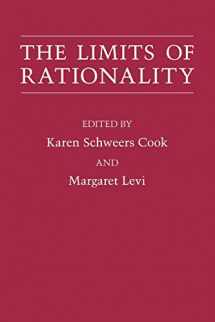
The Limits of Rationality
Book details
Summary
Description
Prevailing economic theory presumes that agents act rationally when they make decisions, striving to maximize the efficient use of their resources. Psychology has repeatedly challenged the rational choice paradigm with persuasive evidence that people do not always make the optimal choice. Yet the paradigm has proven so successful a predictor that its use continues to flourish, fueled by debate across the social sciences over why it works so well.
Intended to introduce novices to rational choice theory, this accessible, interdisciplinary book collects writings by leading researchers. The Limits of Rationality illuminates the rational choice paradigm of social and political behavior itself, identifies its limitations, clarifies the nature of current controversies, and offers suggestions for improving current models.
In the first section of the book, contributors consider the theoretical foundations of rational choice. Models of rational choice play an important role in providing a standard of human action and the bases for constitutional design, but do they also succeed as explanatory models of behavior? Do empirical failures of these explanatory models constitute a telling condemnation of rational choice theory or do they open new avenues of investigation and theorizing?
Emphasizing analyses of norms and institutions, the second and third sections of the book investigate areas in which rational choice theory might be extended in order to provide better models. The contributors evaluate the adequacy of analyses based on neoclassical economics, the potential contributions of game theory and cognitive science, and the consequences for the basic framework when unequal bargaining power and hierarchy are introduced.


We would LOVE it if you could help us and other readers by reviewing the book
Book review



